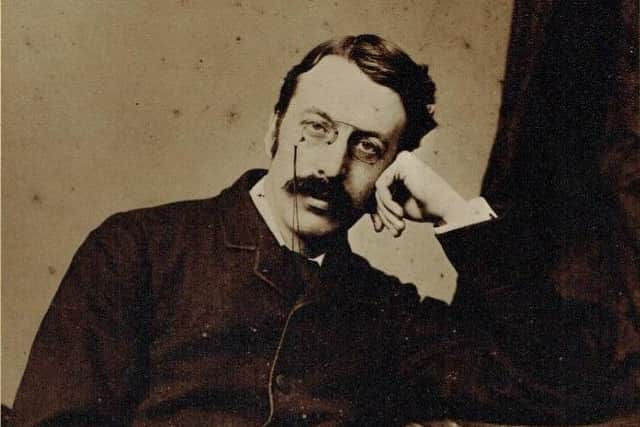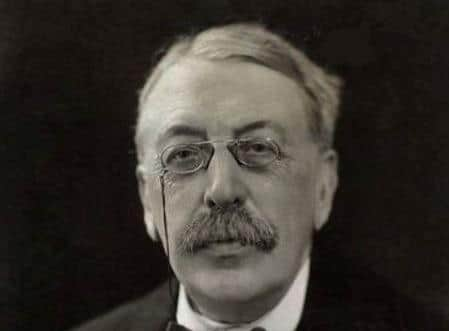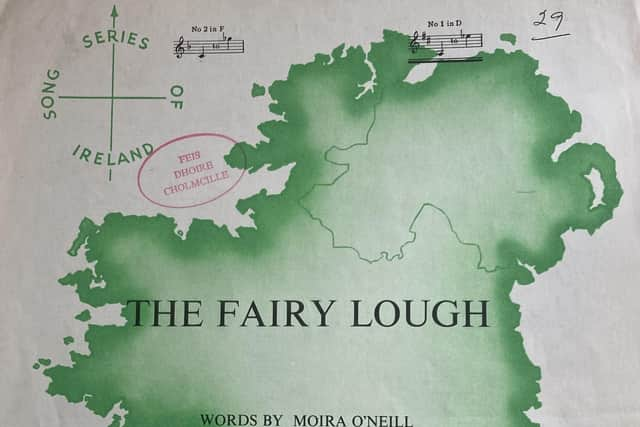£1,000 prize on offer for winner of new competition at Derry Feis
and live on Freeview channel 276
This year marks the centenary of the death of composer Charles Villiers Stanford. And, to mark that milestone anniversary, the organisation formed to preserve his memory and his music – The Stanford Society – has put up the substantial prize for the competition at Derry Feis.
Charles Stanford was born in Dublin in 1852 to parents who were both amateur performers and deeply involved in music in Ireland’s capital city. In fact, Stanford’s father was a founding member of the Royal Irish Academy of Music. As such, the young Stanford received tuition from many of the finest European musicians who played in Dublin and who themselves had studied under the likes of Mendelssohn.
Advertisement
Hide AdAdvertisement
Hide AdAt 18, Stanford enrolled at Queen’s College, Cambridge and immersed himself in the musical life of the university. As director of the Cambridge University Musical Society, he garnered a strong reputation as a pianist, accompanist and conductor while also becoming the organist at Trinity College. Regarded as an innovative musical programmer, he became a musician of note in England and after finishing his degree travelled to Germany where he took lessons in composition in Berlin and Leipzig from Frederick Kiel and Carl Reinecke.


On his return to England, Stanford rapidly rose to prominence as a composer, director, and teacher. As a conductor the Irish man led the Bach Choir, Philharmonic Society and the Leeds Musical Festival. He later became Professor of Composition, Orchestration and Conducting at the Royal College of Music in London when it was founded in 1883 and four years later, he was appointed Professor of Music at Cambridge and held these positions until his passing in 1924.
A prolific composer throughout his career, Stanford’s compositions were regularly performed internationally. However, while he never returned to live in Ireland, it was the music of his native land which provided much of the inspiration for his creativity. He edited five collections of Irish folk melodies and incorporated several Irish folk melodies into his compositions, most notably in his 1887 ‘Irish Symphony’. Although he resigned the presidency of Feis Ceoil shortly after his appointment, he maintained an association with the vaunted Dublin festival. The Stanford Prize was established at Feis Ceoil in 1936 and continues to be awarded to this day.
Pat MacCafferty, Music Secretary at Feis Dhoire Cholmcille will oversee the new competition and is thrilled that music associated with the feis since its foundation in 1922 is to make such a prominent return this year.
Advertisement
Hide AdAdvertisement
Hide Ad“In my own time competing at the feis I sang ‘The Old Superb’ and ‘Irish Skies’ both of which were by Stanford. Those were great times when Sanford’s songs, the songs of Hamilton Harty and Herbert Hughes were featured heavily. Songs like ‘The Calico Dress’, ‘The Chapel on the Hill’ and ‘The Fairy Lough’ were sung by people like Cissie Parlour and Maureen Hegarty and those songs were the staple diet for sopranos at the feis. Wonderful songs, all composed by Stanford,” said Pat.


There are definitive rules in place for the new Stanford competition which are aimed at preserving the purity of the writer’s original compositions.
Pat continued: “Stanford arranged dozens and dozens of songs, but we don’t want arrangements in the feis for the simple reason that it could turn into a Moore’s Melodies competition. We want Stanford’s original compositions, and those songs are the great songs of Ireland – songs that are starting to disappear.
“So, I’m absolutely ecstatic that this competition will run, because for the first time in a long time, people will have to look for Stanford’s songs as they were written by this wonderful composer. This gives a standard of competition we haven’t had for a long time. If you go back to the early days of the feis, you would have had a Stanford competition and the next year a Hamilton Harty competition and the year after that Herbert Hughes and then Thomas Moore. And that’s why I’m delighted that people are going to have to return to these magnificent old songs. But I stress again that the competition will be based on the original compositions. If anyone presents for the competition with an arrangement, they will be allowed to sing, but the adjudicator will tell them that unfortunately they won’t be marked. The Stanford Society has stipulated that they want the compositions of the master himself.”
Advertisement
Hide AdAdvertisement
Hide AdChair of the Stanford Society, John Covell said: “We are delighted to see the reintroduction of the Stanford prize at Derry Feis for vocal music in 2024 – the centenary year of Stanford’s death.


“Stanford composed an extensive range of songs for solo voice and the songs demonstrate the work of a composer with a great facility in composing for the voice. We encourage young performers to explore Stanford’s large repertoire of solo songs and hope that it will inspire them to continue to discover and perform his music, much of which was inspired by the culture and music of Ireland.
“In this anniversary year, the Stanford Society is pleased to support many performances and recordings of Stanford’s music. We hope that you enjoy finding out more about him and his immense contribution to the music of Ireland and the United Kingdom as a composer, teacher, performer and writer”.
Entries for the Stanford Competition and all other feis competitions can be made online at www.derryfeis.com. The entire syllabus can also be downloaded from the website. All other queries can be made via contacting Derry Feis via private message on its Facebook page.